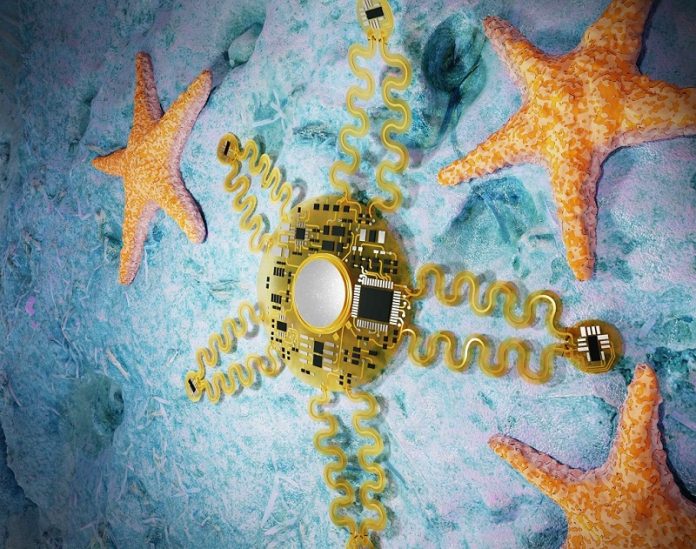
Scientists at the University of Missouri have created a new wearable device that can monitor heart health more accurately—even while you’re moving—by taking inspiration from an unlikely source: the starfish.
The team, led by researchers Sicheng Chen and Zheng Yan from Mizzou’s College of Engineering, designed a heart-monitoring patch shaped like a starfish, with five flexible arms that stick to the skin near the heart.
Just like a starfish uses its arms to flip itself over, this device uses its five arms to stay stable on the body, even during movement.
That stability makes it easier to get clear, reliable heart readings compared to other wearable devices like smartwatches, which often struggle to collect accurate data when the user is in motion.
Each arm of the device has special sensors that collect both electrical and mechanical signals from the heart at the same time.
This gives doctors and users a much more complete view of how the heart is functioning.
The device connects to a smartphone app that displays heart data and alerts the user to any warning signs of heart trouble.
What makes the technology even more impressive is its use of artificial intelligence (AI). The system was trained with heart data from both healthy people and those with heart disease.
The AI can filter out the noise caused by movement and focus on the important signals, accurately identifying heart problems more than 90% of the time.
Thanks to Bluetooth, the data can also be shared with doctors remotely, making it ideal for at-home monitoring between clinic visits.
Unlike traditional heart tests, like Doppler ultrasound scans that require patients to stay still, this device can be used while going about daily activities, offering continuous and convenient monitoring.
The research team is also focused on making the device more comfortable to wear. Right now, it uses a sticky gel to attach to the skin, but future versions will be made with breathable, skin-friendly materials designed for long-term use.
They are also working on a version that can charge wirelessly without being removed.
Still in the early stages of development, this starfish-inspired device blends nature, technology, and smart data analysis to make heart monitoring easier, more accurate, and more comfortable than ever before.
If you care about heart health, please read studies about top foods to love for a stronger heart, and why oranges may help fight obesity, diabetes, and heart disease.
For more health information, please see recent studies about simple guide to a 7-day diabetes meal plan, and why you should add black beans to your plate.



